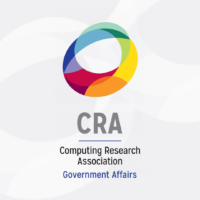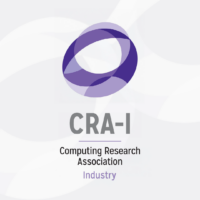Research Agencies Tell Congress of the Challenges with Implementing Research Security Policies
By Brian Mosley, Associate Director, Government Affairs
On February 15th, the House Committee on Science, Space, and Technology held a hearing, titled “Examining Federal Science Agency Actions to Secure the U.S. Science and Technology Enterprise”, to look at how federal science agencies are implementing, “recent guidance and laws to protect proprietary technology and scientific discoveries.” The committee heard from witnesses from the Biden White House and multiple federal research agencies about the status of implementing those policies across the federal government and what challenges there are to preserve the country’s open scientific environment.
The Chairman of the Science Committee, Frank Lucas (R-OK), in his opening statement wasted no time getting to the crux of the hearing: “Research theft is one of the single greatest threats to our competitiveness as a nation.” He went further, pointing out that “our hard-won innovations…(are) put to work for our adversaries” and specifically called out China for their actions to illicitly extract the findings of federally supported research. Chairman Lucas, after providing an overview of the bipartisan actions the committee has taken over the last several years to improve the government’s approach to research security, pointed out that there is still no, “timely, clear, and uniform guidance on this issue for our agencies and for our researchers.” The chairman was also clear to say that the committee is, “not here to target researchers based on their race but based on the actions they have taken, and that their objective is, “to ensure that all federally funded scientists follow the U.S. principles of scientific fairness and integrity.”
The chairman also entered into the record a letter to the Director of the Office of Science & Technology Policy Director (OSTP), Arati Prabhakar, one of witnesses, from the Association of American Universities. In that letter, the President of AAU pointed out the concerns that universities have with no clear guidance from the federal government on implementation of research security programs, and further emphasized that those eventual requirements need to be harmonized across the federal government to not adversely impact research institutions.
In her opening statement, Science Committee Ranking Member Zoe Lofgren (D-CA) did not stray far from Chairman Lucas’ comments, saying, “as the landscape continues to evolve, what’s most important is that we continue to approach this challenge thoughtfully and clear-eyed about the tradeoffs we are willing and not willing to make.” After highlighting several statistics on the contribution foreign born researchers make to the country’s scientific efforts, Representative Lofgren said that we need to, “choose to preserve the global vision of the United States being the best country in the world to be a researcher.” In closing, Lofgren pointed out that, “the rhetoric around research security itself has been enough to send a chill across our colleges, universities, and start-ups.” She specifically noted the impact on the country’s Asian American communities and said, “we must make every effort possible to avoid profiling based on race, ethnicity, or nationality.”
The witnesses for the hearing represented perspectives from the White House and a number of key federal research agencies. The first witness was Presidential Science Advisor and Director of OSTP, Arati Prabhakar, who represented the perspective of the Biden Administration and the lead office in charge of harmonizing research security policies across the Federal Government. In her remarks, Dr. Prabhakar highlighted several steps OSTP has taken with regard to research security, such as releasing a memo on the purpose and use of common forms for researchers and guidelines covering foreign talent recruitment programs (both will be the subject of a future Policy Blog article). Joining Dr. Prabhakar were Dr. Rebecca Keiser, Chief of Research Security Strategy and Policy at the National Science Foundation; Dr. Geri Richmond, Under Secretary for Science and Innovation at the Department of Energy; and Dr. Michael Lauer, Deputy Director for Extramural Research at the National Institutes of Health. Collectively they provide perspectives of how their research agencies are implementing their own research security programs and the response from their communities.
During the question period, it was clear that the committee members wanted to hear how the federal research agencies were guarding against the theft of taxpayer funded research, particularly from the Chinese government. However, the witnesses tried to articulate that there remain considerable challenges to implementing these policies. In response to a question from Chairman Lucas, Dr. Pradhakar said that initial comments that OSTP received from the community gave them “considerable pause” in moving forward, with concerns about the administrative burden on universities and researchers being specifically mentioned, as well as not wanting to turn these requirements into a “checklist.” All the witnesses conveyed that they were impressing on their individual research communities that these requirements are a serious matter and should not be dismissed out of hand. But they also conveyed, to the members of the committee, the trepidation that their communities felt about these policies and programs.
There was a particularly telling anecdote that Dr. Richmond voiced about a researcher who is originally from China but had established his career and life in the United States and planned to remain here. According to Dr. Richmond, he was terrified of being punished for a simple mistake and being sent back to China. In an exchange with Rep. Brandon Williams (R-NY), quoted by Science Magazine in their own coverage of the hearing, Dr. Richmond told the researcher to take these policies seriously and:
“the next time you submit a [grant] proposal, you need to be honest and transparent with your university about your current and pending research support…because we don’t know whether to trust you or not.”
This hearing underlines the fact that research security is a matter of great importance to lawmakers in Washington, and it will continue to be a matter of great importance for the foreseeable future as research agencies continue to rollout their policies. American researchers, should they wish to continue to receive taxpayer funded research grants, need to take this matter seriously too and follow closely any new policies that the research agencies release. At the same time, the community needs to be sure that the government’s concerns about research security don’t turn into government overreach. It was clear at the hearing that both the research agencies, and the leaders of the House Science Committee, are grappling with that concern while attempting to secure the nation’s research enterprise. CRA will continue to monitor this matter, representing the concerns and positions of the community with policymakers, and will report out any new developments.









